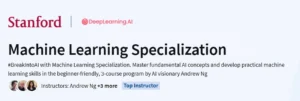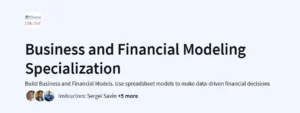What will you learn in Mastering Big Data with PySpark Course
Understand the big data ecosystem: ingestion methods, storage options, and distributed computing fundamentals
Leverage PySpark’s core RDD and DataFrame APIs for data processing, transformation, and analysis
Build and evaluate machine learning pipelines with PySpark MLlib, including classification, regression, and clustering
Optimize Spark performance via partition strategies, broadcast variables, and efficient DataFrame operations
Integrate PySpark with Hadoop, Hive, Kafka, and other tools for end-to-end big data workflows
Program Overview
Module 1: Introduction to the Course
⏳ 30 minutes
Topics: Course orientation; PySpark within the big data landscape
Hands-on: Set up your Educative environment and explore the sample dataset
Module 2: Introduction to Big Data
⏳ 1 hour 15 minutes
Topics: Big data concepts, processing frameworks, storage architectures, ingestion strategies
Hands-on: Complete the “Introduction to Data Ingestion” quiz and review solutions
Module 3: Exploring PySpark Core and RDDs
⏳ 1 hour 15 minutes
Topics: Spark architecture, resilient distributed datasets, RDD transformations and actions
Hands-on: Write and execute RDD operations on sample data; pass the RDD quiz
Module 4: PySpark DataFrames and SQL
⏳ 1 hour 30 minutes
Topics: DataFrame API, Spark SQL operations, data exploration and advanced manipulations
Hands-on: Perform DataFrame transformations and complete the Data Structures quiz
Module 5: Customer Churn Analysis Using PySpark
⏳ 45 minutes
Topics: End-to-end churn analysis workflow: preprocessing, feature engineering, EDA
Hands-on: Work through the “Customer Churn Analysis” case study and quiz
Module 6: Machine Learning with PySpark
⏳ 1 hour 30 minutes
Topics: ML fundamentals, PySpark MLlib overview, pipeline construction, feature techniques
Hands-on: Build a simple ML pipeline and pass the MLlib quiz
Module 7: Modeling with PySpark MLlib
⏳ 1 hour 15 minutes
Topics: Regression, classification, unsupervised learning, model selection, evaluation metrics
Hands-on: Train and evaluate models; tune hyperparameters in provided exercises
Module 8: Predicting Diabetes in Patients Using PySpark MLlib
⏳ 45 minutes
Topics: Diabetes prediction case study: data prep, model build, evaluation
Hands-on: Complete the “Predicting Diabetes” quiz and solution walkthrough
Module 9: Performance Optimization in PySpark
⏳ 1 hour 15 minutes
Topics: Partition optimization, broadcast variables, accumulators, DataFrame performance tips
Hands-on: Optimize sample queries and pass the Performance Optimization quiz
Module 10: PySpark Optimization: Analyzing NYC Restaurants Data
⏳ 45 minutes
Topics: Real-world optimization on NYC dataset; best practices for efficient queries
Hands-on: Apply optimization techniques and review solution code
Module 11: Integrating PySpark with Other Big Data Tools
⏳ 1 hour
Topics: Connecting PySpark with Hive, Kafka, Hadoop, and integration best practices
Hands-on: Configure and test integrations; complete the integration quiz
Module 12: Wrap Up
⏳ 15 minutes
Topics: Course summary, key takeaways, next steps in big data learning
Hands-on: Reflect with the final conclusion exercise and project challenge
Get certificate
Job Outlook
The average salary for a Data Engineer with Apache Spark skills is $108,815 USD per year in 2025
Employment for data scientists and related roles is projected to grow 36% from 2023 to 2033, far above the 4% average for all occupations
PySpark expertise is in high demand across tech, finance, healthcare, and e-commerce for scalable data processing solutions
Strong opportunities exist for freelance consulting, big data architecture roles, and advancement into ML engineering
Specification: Mastering Big Data with PySpark
|





